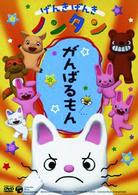Full Description
WINNER OF 2018 AERA DIVISION B OUTSTANDING BOOK AWARD FOR OUTSTANDING EDITED COLLECTION IN CURRICULUM STUDIESWhile campuses across the United States have been offering spoken word programs for over 20 years, little attention has been paid to their purpose and impact beyond their contribution to the campus social aesthetic. There is an increasing understanding that performance poetry and spoken word is much more than entertainment. Within disciplines such as English, Ethnic, Women's, and Cultural Studies, scholarship has identified spoken word's role in developing political agency among young adults; its utility for promoting authentic youth voice; and its importance as a tool of cultural engagement.This book - compiled by scholar artists, including internationally recognized spoken word performers - offers guidance to student affairs professionals on using spoken word as a tool for college student engagement, activism, and civic awareness. It makes the case that campus event spaces need to transcend their association with the theatre or art departments to provide a venue where students are allowed to be different and find opportunities for personal and intellectual development and civic engagement. Open mic nights offer college students a way to speak out, advocate, lead, educate, and explore with their peers. This book presents a mix of critical essays and college student writing that explore themes of spoken word, student engagement, and campus inclusion and address these key topics:• Spoken word as an educational, civic engagement, and personal development tool (particularly among traditionally marginalized communities)• The links between spoken word and social activism (art as social action; art as a form of civic leadership)• The importance of privileging student voice in student affairs programming (even when they yell; even when they're angry)• The challenges that come with engaging students in exploring intersecting concepts like race, gender, and class• Considerations for creative and intentional spoken word programming (What does a creative program look like?) • Scaling up for sustainability (through student affairs/academic affairs partnerships, study abroad collaborations, etc.).
Contents
Foreword—Wilson K. Okello and Stephen John Quaye Preface Acknowledgments Introduction—Robb Ryan Q. Thibault Prologue1. Soul Mates. When the Academic Scholar Meets the Street Poet—Toby S. Jenkins Student Voices—Jason Reynolds 2. The Spoken Word Experience. Shifting Student Learning From the Classroom to the Stage—Anthony R. Keith Jr. Student Voices—Quay Anthony Dorsey 3. Words Have Power. Spoken Word Performance as an Educational, Community Engagement, and Personal Development Tool for College Students—Crystal Leigh Endsley Student Voices—Caty Taborda-Whitt 4. Talking Back and Mouthing Off. The Importance of Privileging Student Voice in Student Affairs Programming—Toby S. Jenkins Student Voices—Opeyemi Owoeye (O-Slice. 5. Poetry is My Politics. Linking Spoken Word and Social Activism—Crystal Leigh Endsley Student Voices—Terri Moise 6. Social Justice Education Ain't Pretty. A Case for Hip-Hop Feminist Studies—Marla L. Jaksch Student Voices—Kevyn Teape 7. Setting the Stage. Considerations for Creative and Intentional Spoken Word Programming—Anthony R. Keith Jr. 8. Scaling Up for Sustainability. Hip-Hop and Spoken Word as Vehicles for Transnational Inclusion—Marla L. Jaksch Epilogue—Toby S. Jenkins About the Editors Index








